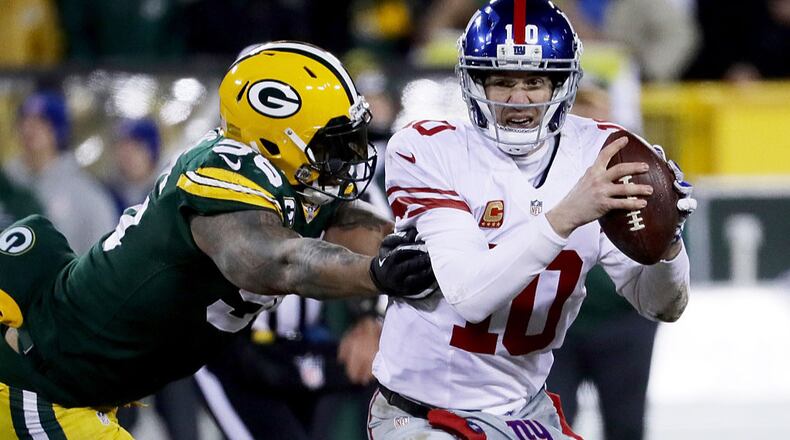Quarterback Eli Manning surrendered an email earlier this month in connection with a lawsuit that claims he, along with the New York Giants and a team equipment manager, knowingly provided false game-worn memorabilia to collectors, ESPN reported.
The email was included in a court filing in Bergen County (N.J.) Superior Court by collectors Eric Inselberg, Michael Jakab and Sean Godown, who filed suit three years ago.
According to the New York Post, which obtained court records, Manning, who has a contract with memorabilia dealer Steiner Sports, instructed equipment manager Joe Skiba to retrieve the equipment so it could be sold off as authentic.
“2 helmets that can pass as game used. That is it. Eli,” Manning wrote to Skiba from a BlackBerry on April 27, 2010, according to court documents.
The email was initiated after Manning was sent a note by Alan Zucker, his marketing agent throughout his career, to come up with some equipment to satisfy his obligation to provide such materials to Steiner Sports, ESPN reported.
The plaintiffs' lawyer, Brian Brook of Clinton, Brook & Peed, told ESPN that the email, included among roughly 200 pages of documents Manning produced as part of legal discovery, was key to specifically linking the quarterback to the lawsuit, which alleges an elaborate scheme to produce, pass off and sell memorabilia as game-used that was not.
The suit also alleges that the Giants were complicit by deleting the email from their accounts.
"The email, taken out of context, was shared with the media by an unscrupulous memorabilia dealer and his counsel who for years has been seeking to leverage a big payday," McCarter & English, the law firm representing the Giants in the case, said in a statement. "The email predates any litigation, and there was no legal obligation to store it on the Giants server. Eli Manning is well known for his integrity and this is just the latest misguided attempt to defame his character."
It is not likely that Manning, the Giants or their employees would be subject to criminal prosecution as the alleged actions in question have passed the federal five-year statute of limitations, ESPN reported.
The trial is scheduled to begin on Sept. 25.
About the Author
Keep Reading
The Latest
Featured


